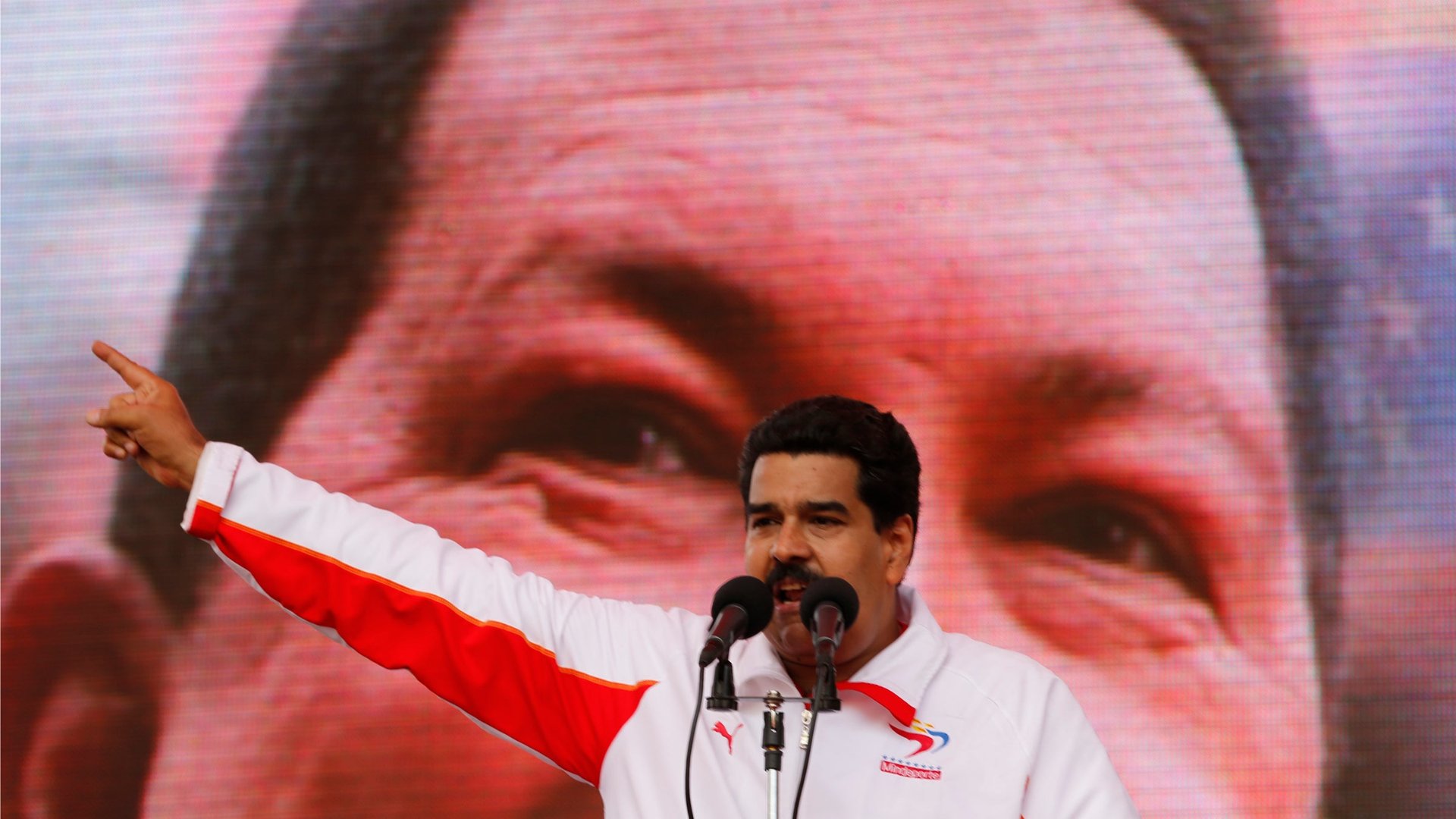Venezuela just inaugurated its very first vice-minister for happiness
Happy times are ahead for Venezuela.


Happy times are ahead for Venezuela.
Yesterday (Oct. 24), Venezuela’s president, Nicolás Maduro, announced the creation (link in Spanish) of a new governmental office: Viceministerio para la Suprema Felicidad Social del Pueblo, or “vice-ministry for the supreme social happiness of the people.” Now, as of Friday, Maduro has officially introduced Rafael Ríos, the country’s very first vice-minister of happiness. Ríos will be responsible for overseeing a number of government programs focused on social wellbeing.
“I have decided to create the office, and I have called it as such in honor of our commander [Hugo] Chávez and our [Simón] Bolivar, for the supreme social happiness of the people of Venezuela,” Maduro said, invoking the country’s late former president and the 19th-century liberator of Latin America. “Comrade Rafael Rios will be responsible for implementing and coordinating the famous missions created by our ‘perpetual Commandant’ with the purpose of ensuring ‘supreme social happiness.’”
According to Maduro, Ríos’ responsibilities will include, among other things:
- attending to “the old men, old women, young boys and young girls, in order to watch over Venezuela’s most sublime and loved people”
- attending to the disabled
- attending to the homeless
- fielding “claims and needs of Venezuela’s most vulnerable”
- supervising collaborative social programs with Havana, Cuba, a key Venezuelan ally.
- coordinating the more than 30 social programs called “Missions” recently launched by the Venezuelan government
While Venezuela’s move looks like the latest in a series of zany populist responses to the country’s deepening economic misery, it also plays into a global shift away from traditional measures of national growth. More and more countries are beginning to keep happiness metrics as a means of gauging governmental success. Bhutan’s Gross National Happiness Index, for instance, includes 124 components—some of which are economic, but many of which are not. And Brazil, New Zealand and the UK, among others, are also hopping on the happiness bandwagon. The United Nations even started publishing an annual world happiness report, according to which Venezuela is already the 20th-happiest (pdf, p. 22) of 156 nations—not a bad position, all things considered.
But the new office is also a not-so-subtle revival of Chávez-era populist programs. These “missions” helped large swaths of Venezuela’s population that were otherwise overlooked—namely, the poor, old and disabled. Corruption and bureaucracy eventually ruined the programs’ success, but Chávez used to resuscitate them ahead of elections as a means of vote-wooing. The announcement coincides with the creation of the “Loyalty and Love to Hugo Chávez Day” just before December’s key municipal elections, which aren’t likely to favor Chavez’s ruling party, given its proven inability to provide the populace with sufficient food and basic goods.